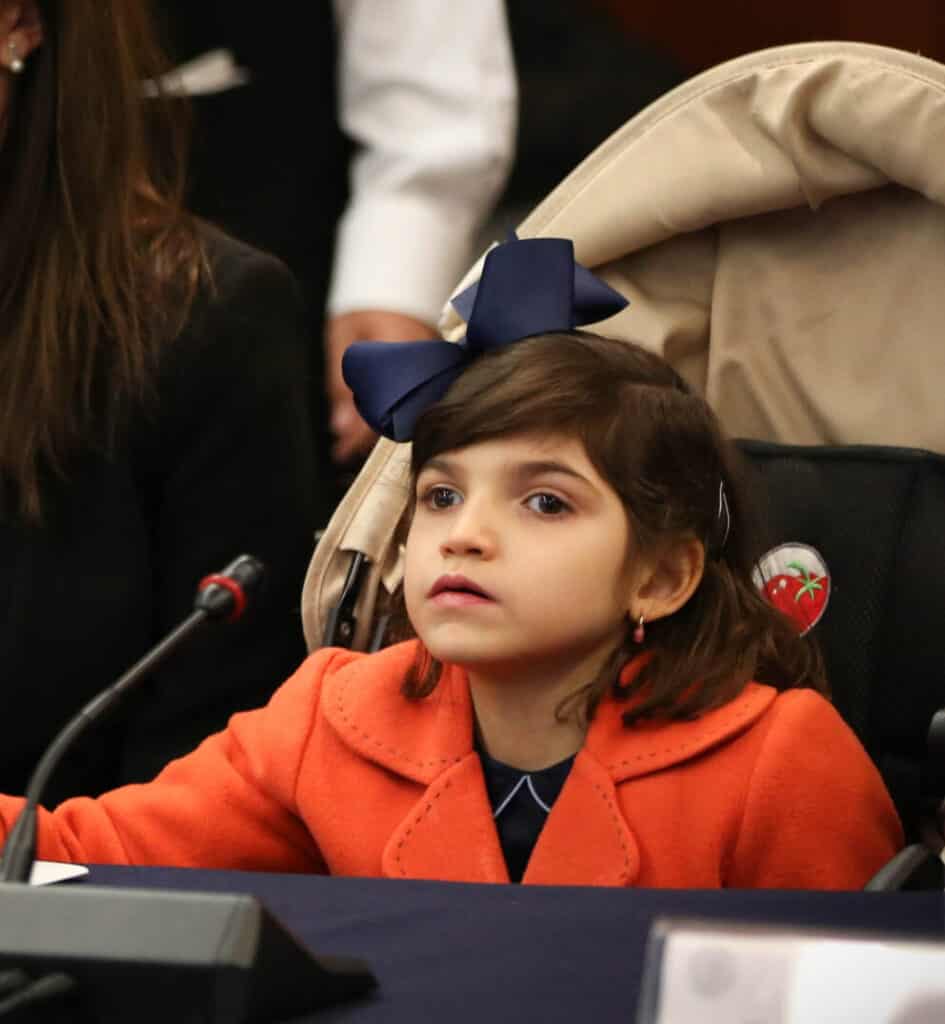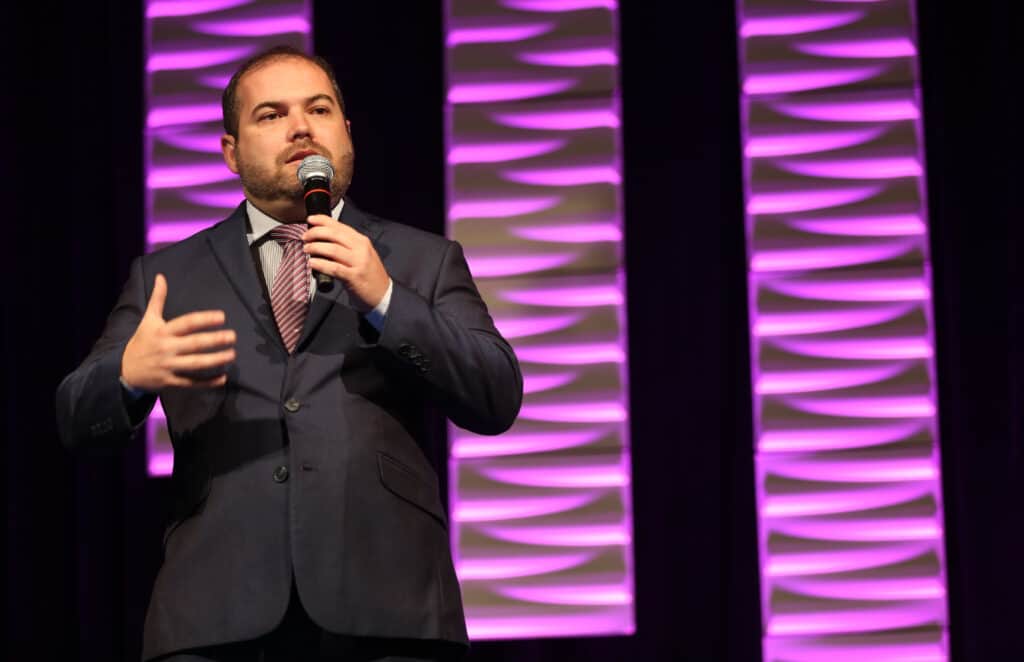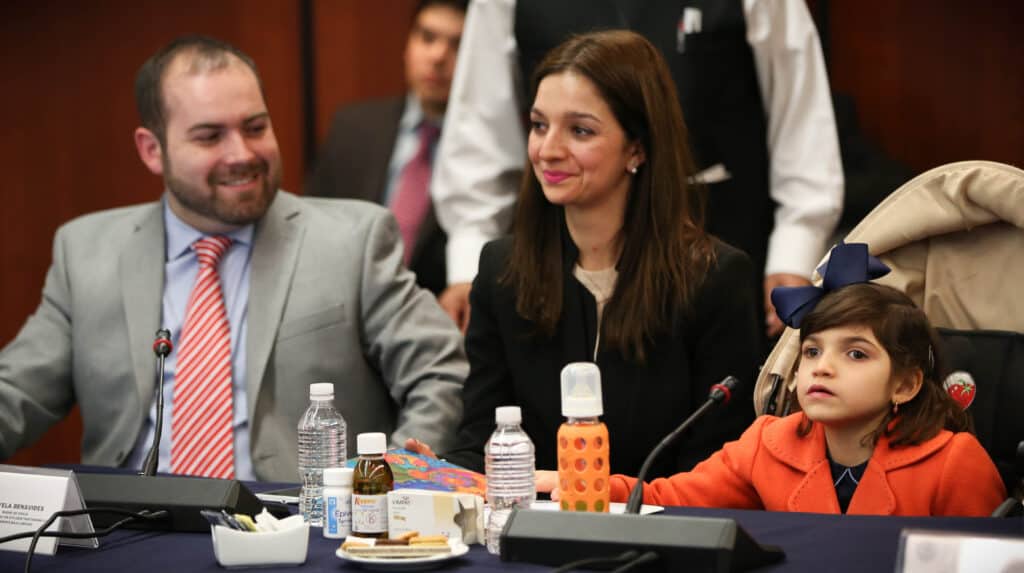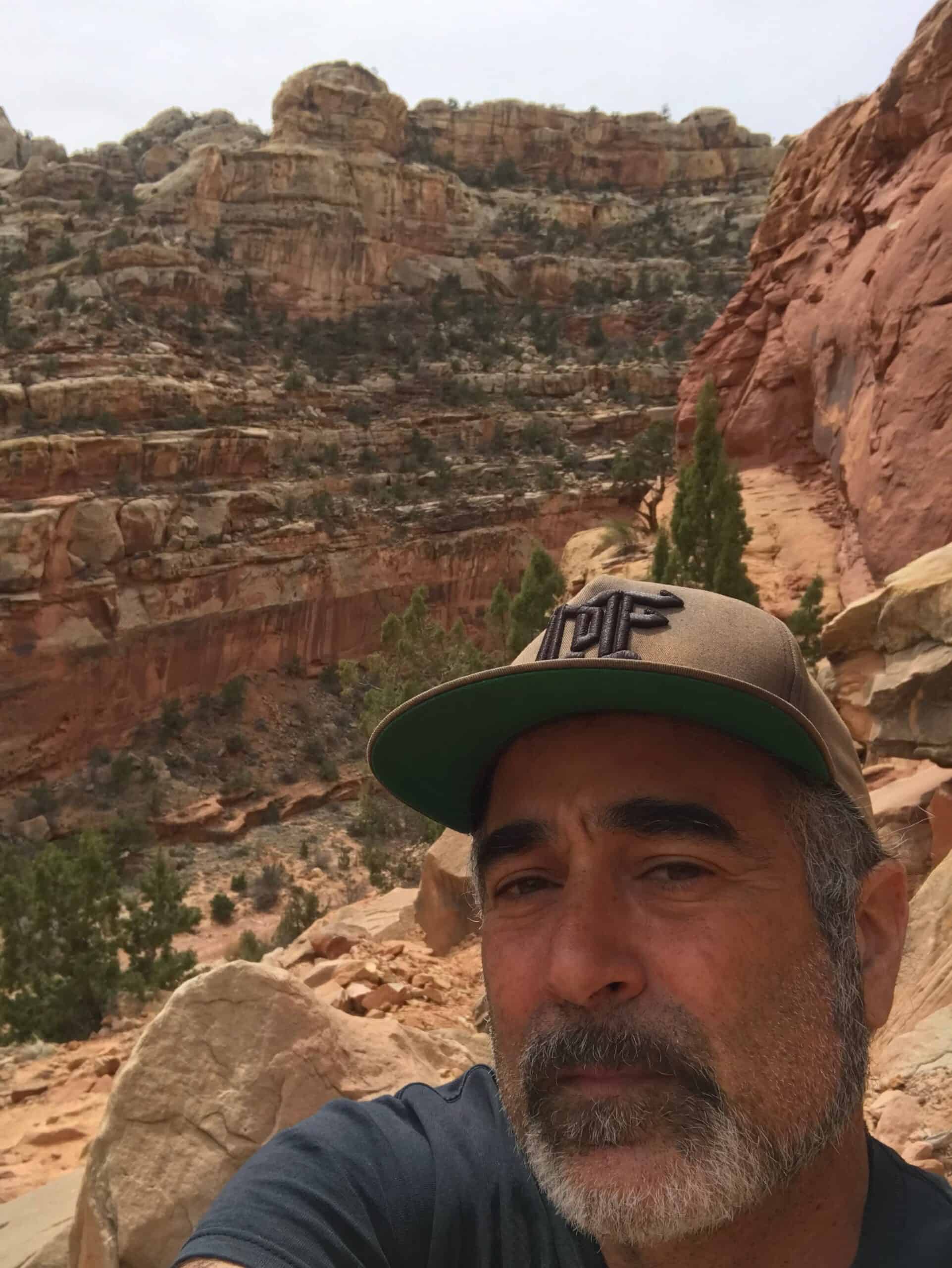Raul Elizalde and his wife Mayela had tried everything to control their daughter Grace’s severe epilepsy, an affliction so extreme that the young girl was suffering up to 400 seizures a day. They experimented with multiple anticonvulsant medications, biomagnetic therapy, acupuncture, even brain surgery, but nothing worked against the rare and potentially life-threatening disorder known as Lennox-Gastaut syndrome. CBD was their last hope.
But first they would have to overcome an enormous obstacle: a federal law making it illegal to import or consume cannabis products in Mexico. The situation was looking bleak for Elizalde back in 2015, when even hemp-based cannabidiol was prohibited, but the 35-year-old lawyer refused to quit on his daughter’s treatment. So he formed a nonprofit named after his daughter, Fundación Por Grace, and took her case before a federal court on grounds that the government ban was unconstitutional.
Much to everyone’s relief, he won what would go down in history as a landmark decision.
The favorable ruling allowed Grace, at just eight years old, to become the first person in Mexico to legally use a cannabis-derived product for medicinal purposes. It has worked wonders – since taking the high-dose treatment of full-spectrum CBD, her health has improved dramatically.

“Grace is doing amazing now,” Elizalde says. “Even with the CBD she still has seizures but they are under control: she went from having 400 a day to as few as five on a good day.”
Grace soon turns fifteen, and she can now do things like go on a family vacation or enjoy a sit-down meal in a restaurant.
In a broader context, Grace’s case paved the way for a 2017 law that made medical marijuana legal in Mexico and, to a larger extent, it laid the groundwork for a series of historic Supreme Court decisions overturning bans on cannabis for recreational and industrial uses.
Granted, commercializing medical marijuana in Mexico still presents unique challenges, namely because federal law requires medicinal cannabis to be sold as a medication, and getting government approval for a product has proved difficult to say the least.
“That’s why everyone says it’s a gray market,” Elizalde says. “Most of the companies here do not have the structure to become a pharma company. It’s not an easy task and it requires heavy investment.”
Making matters more complicated, accessing higher THC products for medicinal use requires a doctor’s prescription and there simply aren’t many physicians willing to write one, which explains why most companies would rather sell less restrictive products such as oils and balms containing less than 1% THC.
As things currently stand, the Senate is reviewing a cannabis bill that, if passed, would make Mexico just the third country after Canada and Uruguay to fully legalize adult-use cannabis on a federal level.
It’s a tall order in a nation grappling with a brutal drug war, but legalization advocates like Elizalde, who now heads one of the top cannabis companies in Mexico, believe a regulated market for recreational, industrial, and medicinal use is the next key step in normalizing production, sales, and consumption.
When life takes an unexpected turn
As it turned out, it wasn’t just Grace who saw her life undergo a momentous shift. Before becoming a full-time champion for legalization, Elizalde earned a living practicing tax law and running a small import business out of Monterrey, an industrial city about 135 miles south of the Texas border. However, once Grace’s court case started making international headlines, word spread quickly about Elizalde’s game-changing advocacy work.
Soon enough he would get a call from Medical Marijuana, Inc. subsidiary HempMeds, who made him a job offer he couldn’t refuse.
“I said yes immediately because I was already immersed in the industry and I knew from experience with these products that you can actually make a positive change in the world,” he says.
Elizalde’s background in law, imports, and lobbying proved invaluable in navigating fledgling industries in Mexico, Argentina, and Brazil, and before he knew it he ascended to CEO of HempMeds.

Mexico still has a relatively small market compared with that of the US, but the two dozen or so licensed cannabis companies here see tremendous growth potential, especially after the Supreme Court recently issued an unprecedented ruling allowing Xebra Brands‘ Mexican subsidiary, Desart Mx, to import cannabis seeds as well as cultivate, manufacture, and process hemp products in Mexico. Should health regulatory agency Cofepris give the final okay, companies like HempMeds could also seek approval to locally produce and commercialize a range of supplements and cosmetics containing less than 1% THC, everything from hemp-based oils and balms to beverages and edibles. The ripple effect would also benefit industry giants such as Aurora Cannabis and Canopy Growth, as both companies have plans to manufacture and distribute their products in Mexico under key partnerships, the latter with beverage behemoth Constellation Brands.
Of course, ideally, Congress would also pass the long-awaited law, positioning Mexico as one of the largest cannabis markets on the planet, but it’s anyone’s guess when and if that will happen.
The billion-dollar question: Is full legalization on Mexico’s horizon?
Elizalde isn’t holding his breath.
At one point last year, Senate Majority Leader Ricardo Monreal hinted that the law was looking like a strong possibility, telling local media outlets that the upper house had prioritized legislation to legalize cannabis for recreational use. He even said he expected the complex bill to pass by the end of 2021, but that never happened. Some industry figures remain optimistic that a deal could get done this year, while others share Elizalde’s opinion that the legislative wrangling could drag on for years. The waiting game dates back to 2018 when the Supreme Court overturned Mexico’s prohibition of recreational marijuana and subsequently issued a mandate to Congress to rewrite the law.
“I don’t think legalization of marijuana for recreational use is going to happen this year because it’s very complicated and this government probably isn’t willing to do it halfway through its administration,” Elizalde says. “(The president) might be more willing to back it at the end of his term in 2024.”
Julio Salazar, senior legal counsel of the Mexico City-based NGO Mexico United Against Crime, agrees: “Cannabis legislation is simply not a priority for this administration. I just don’t see the political will to get it done.”
President Andrés Manuel López Obrador, of the ruling Morena party, is seen as a left-leaning politician but some believe his socially conservative views, as well as his strong ties with a military tasked to eradicate weed, do not bode well for legalization.
The president has publicly voiced concerns over legalization, saying it could bring more drug-related violence and addiction to Mexico. However, he’s left himself open to the possibility of signing the bill into law if he can be certain that it would “do no harm to the country.”
Even if the Senate were to pass legislation this year, it would take at least another two years to have the infrastructure and regulatory framework in place, meaning the recreational market wouldn’t be up and running until 2024 at the earliest. In the meantime, many are hoping the government will allow the industrial side of the market to develop, regardless of whether the bill passes.
Making a difference
As the legalization debate continues to divide opinions, Fundación Por Grace has done remarkable work. Elizalde launched the foundation, in part, to give his cause more political clout, and it did just that. Initially, he assumed that not many people in Mexico would be seeking alternative treatments, but his opinion quickly changed after seeing all the families reaching out to the foundation for support.
Now run by his wife, Mayela Elizalde, the NGO has helped more than 1,000 families struggling with various refractory illnesses, some of which have received either free or heavily discounted treatments similar to the full-spectrum CBD regimen that has helped Grace. The surprising realization that the foundation had taken on a life of its own marked a turning point for Elizalde.
“It was then that I realized that I wanted to work in the industry,” he says. “It changes your life when strangers tell you their children are doing better.”





